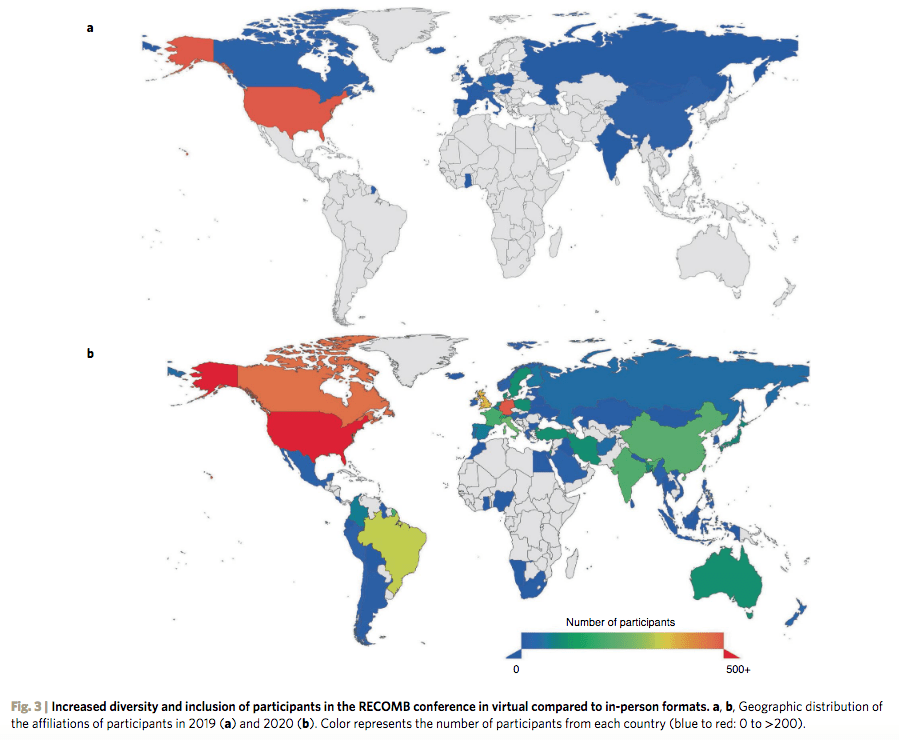As COVID-19 restricted public gatherings, scientific conferences shifted online to maintain the direct exchanges of ideas and knowledge essential to progress. However, international research led by the USC School of Pharmacy shows that, while virtual meetings increase participation by scientists from underrepresented groups and developing countries, they also reduce opportunities for networking and collaboration.
Published in Nature Biotechnology, the study analyzed the attendance demographics of four major conferences. The authors note that virtual platforms eliminate travel costs and can break down communication barriers through real-time translation and transcriptions. But challenges include connecting across time zones and the lack of high-speed internet in much of the world. Meanwhile, reduced diminished personal contact hinders collaboration and career advancement.
“Our findings provide evidence favoring a hybrid format for future conferences, marrying the strengths of both in-person and virtual platforms,” said senior author Serghei Mangul, assistant professor of clinical pharmacy. “This would broaden conferences’ reach to more communities and a higher number of countries. In addition to providing opportunities to previously under-represented groups to attend global conferences, use of a hybrid format will contribute toward decarbonizing conference travel after the pandemic.”
The study follows related research in Nature Sustainability analyzing the impact of the transformation of science and engineering conferences from in-person to virtual. Led by Professor Andrea Armani of the USC Viterbi School of Engineering, that study found improvement across nearly all metrics, increasing attendance and geographical diversity while reducing costs and carbon footprint.
School of Pharmacy graduate students Anushka Rajesh, Karishma Chhugani, Yu-Ning Huang and Kerui Peng co-authored the study with Mangul. Fellow authors include researchers from Allegheny College, UCLA, Stanford University, National Autonomous University of Mexico and the University of Bucharest.


